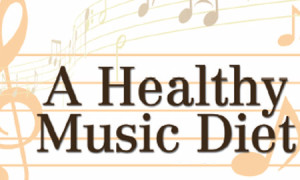Welcome to The G aka Gool’s Guitar Gossip – blogging about anything music related

“If you forget your dreams you die” is a line a friend once quoted me from “Run to the Light” by metal band Trouble.
Basically I was having a bit of a bad day as despite all the efforts my band was not going anywhere. Or at least I thought. The restless teenager I was, I had no patience once we released our demo to wait for the reviews to start rolling in (hence my blues). But hey presto, some months later and we actually ended up being received stunningly well around the globe.
We all get good & bad times – that’s life! But each time a student comes to me feeling they are not improving, I mention my above example from my teens, that the fact they keep on practicing, they are stocking more information into their subconscious which will come across naturally without pushing it. And that in blocks of 4-6 months they will see improvement in how they play. Without fail, it always works. So the point here is always give time for the flower to blossom, for the caterpillar to become a butterfly, for yourself to improve, and never expect too much too soon, as that is a demotivator none of you need.
On the course start date, the guys came but the girl not (turns out she was Trent’s mate’s girlfriend, so Trent’s mate will be teaching her later himself). So did I loose a student? Actually not, the guys decide to change plans few days later, and ask me if I could teach all 3 back at their place, which is something I do, as I teach at students’ homes too, in group and separately. So this is an example of when I was waiting for my band reviews in my teens, every loss is a blessing in disguise that opens future doors. Always stay positive, love your instrument, and play!
So what’s this dream suggesting? The ‘strangers’ in our dreams are actually people we’d have seen when out and about as the brain cannot make-up new faces for us to dream about. So given the amount of true facts that happened at about the time of the dream, its narration all makes sense to me. How reality comes into our dreams, or at least mine, is something one cannot understand (is there a need to?), although I think this is the same way one learns chords & scales, or to a higher degree, songs come to us while asleep.
Yes we do practice chords and scales while awake, but we really learn them while asleep. How many times have you been rehearsing with your band, and that same night or the day after, you get the riff B that connects Riff A to Riff C?
So the next time you start dreaming music, it means you are actually improving, and that is your subconscious reacting to your daily practice.
Also back to reality, daydream as much as you can that you can become a rockstar. But do not stop at that. Life will throw you many setbacks – the way to make it to the top is what you learn from each setback, and how you soldier on with perseverance. But never, and for no reason, should you stop dreaming! Good luck my friend!
www.malcolmcallus.com
Modern approaches to guitar, bass, ukulele & music theory tuition
What is it with some players who despite their solid understanding of music’s “right” notes, they still get tired (or even feel pain) when playing for a long stretch of time?
The answer is simply that musical performance is an athletic discipline like any other sport, and that effortless playing depends on the body’s fitness.
Getting the best result for the least effort is indeed the most elegant way of doing anything, but is it practice that makes perfect? I would rather say repeating nonsense achieves fluent nonsense. As the reknown Alexander Technique mentions “prevention is better than cure and hence one is to focus on how to carry out actions to build GOOD habits.” So consult, stop to listen to others with less/ no physical shortcomings, and then re-approach one’s methods afresh. Sometimes dropping the stubbornness that something is good only because it has worked for many years is the key to open a new door.
So here follow some guidelines I’ve over the years shared on how to play comfortably, and why everything IS possible! As you may note, these are split into physical and mental exercises – the physical is first as it’s the actual practical task you try; however you’ll sure instantly notice a change in application (maybe easier) when you re-try the practical tasks after reading the mental part.
All following physical examples are for a right-handed guitar player:
1. Simply rest the right hand on guitar. The weight of arm keeps guitar in place, so do not try to push the guitar inwards from the right as this effects the posture.
2. Strap to be fitted so that guitar is same angle whether sitting/standing.
3. Thumb should not curl around fingerboard but rather act as a pivot midway behind the fretboard in line with the 2nd finger from the front. If not, the palm of the hand is narrowed, restricting playing of notes on adjacent frets.
4. A good posture depends on your body staying balanced and erect, avoiding undue twisting, with your head, elbows and neck able to move freely, your back standing/ sitting up firm & no twisting of shoulders to side.
5. The left shoulder isn’t to lean sideways towards the guitar. The hand and elbows are free as to pull the guitar inwards to the left of the body, if at all necessary.
6. Avoid picking too loud with right hand as this in turn demands left hand to apply more fretting pressure.
7. Despite a tutor’s guides, the best way to improve is to experience things first hand. A good way is for you to play a piece focusing on new posture without much attention to the piece, then playing the piece again with the old posture. This will reveal how the new posture differs from the old, and how easier it is.
Mental suggestions:
1. There’s no way but the best way. It’s the easiest to master, so make a habit of that. This is known as the cycle of conscious incompetence > conscious competence > unconscious competence i.e. first you’re aware of your shortcomings, then you practice enough to garner skill & the knowledge that you know what you’re doing, then your knowledge becomes so innate that you don’t even think about it, and it flows out of you when you perform.
2. Mental rehearse what needs to be done, and focus on it before actually playing it. This way the muscles will probably react more positively, as research has proven that the muscles react when thinking about something as they would when one actually does it.
3. Practice with awareness of your goals vs too much unfocused practice repeating same mistakes. I.e. playing flamenco differs from playing metal so new postures for each might have to be learnt, as what works for one style might not necessarily work for another.
4. Listen to the music to produce a tone befitting the style being played vs just focusing on getting a better tone. Decreasing your physical efforts makes you more sensitive to producing tone colours, in turn enjoying music more.
5. Instruct yourself with positives not negatives (DOs not DONTs).
So you might still argue that the old way works better? Well try the new way, see how it functions for you, think about how it differs from your previous methods, and only then reject it.
A Chinese idiom goes: “I hear and I forget, I see and I remember, I do and I understand.”
And I bet you that if you understand the easiest way, it will become your new habit and you will not reject it. Just as many professional guitar players before you have not.
www.malcolmcallus.com
Modern approaches to guitar, bass, ukulele & music theory tuition
Creativity always having been the crux of what makes an artist, innovations to one’s music allow its listeners more anchor points to experience it differently out of “the musician’s box”.
Hence, the above, similar and others, are some of the many Q&As I approach through this blog, as to convey a sense of looking at music not only from a chords’ & scales’ point of view, but further!
www.malcolmcallus.com
Modern approaches to guitar, bass, ukulele & music theory tuition